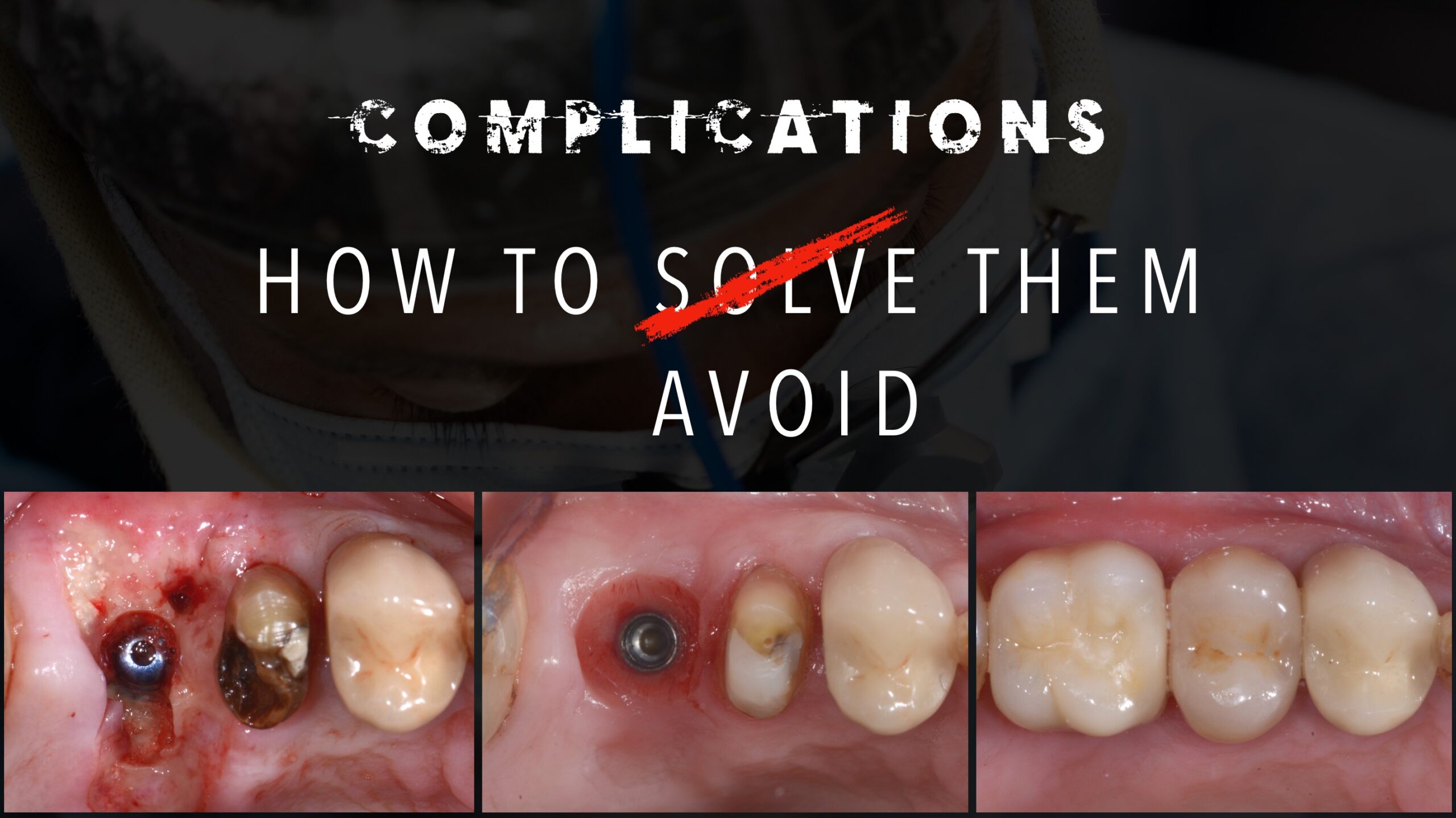Complications in Implant Dentistry are a very common situation we may face in our daily practice. This will be the topic that I will present next February 22nd in Lithuania and here I want to share some important tips that you should know:
1-. One of the most important factors that we should attend is to detect the cause of the complication (physical & biological)
2-. These complications depending on which stage of the treatment they are detected would be considered:
-Immediate complication: The one that is detected during the procedure. E.g: Sinus membrane perforation.
-Early complication: The one detected during the healing phase after the surgery (within the first week)E.g: Osteitis or dry socket after tooth removal or implant placement in smokers or periodontally compromised patients.
-Late complication: The one detected once the implant has been restored, derived from a restorative point of view affecting the implant as a consequence.
3-. Whenever you face a complication, regardless the cause and especially the early & late grab your camera and take a picture as much representative as you can. This is an important tip to find out the physical cause if it is detectable.
4-. Apply the biological rules established by nature and consider that:
– Blood supply is essential for proper soft tissue healing.
-External factors such as Systemic Disease or bad habits will impair the results.
-Tension at the suture will create an ischemic environment with blood vessels compromise.
-Over expose the area with big flaps will raise the symptoms & inflammatory response.
-Reduce the surgical time as much as you can since long surgeries also increase the number of complications.
-Lubricate the instruments during the whole surgical procedure to avoid dry contact.
-Single incisions are better than twin incisions since the lack of blood supply will affect the healing.
-Mesial vertical incisions are less damaging since we are not blocking the blood supply from the starting point.
-The use of Growth Factor Therapy will help to increase the angiogenesis and protect the area against undetected or unavoidable factors.
-The use of injectable corticoids might create local necrosis of the tissues, use oral administration.
By knowing how to manage a complication you will enjoy much more this profession. Train yourself as much as you can always to AVOID that complication and remember that the Biologically Oriented Implantology is the one that prevents most of the Issues we are facing today in Dentistry.

